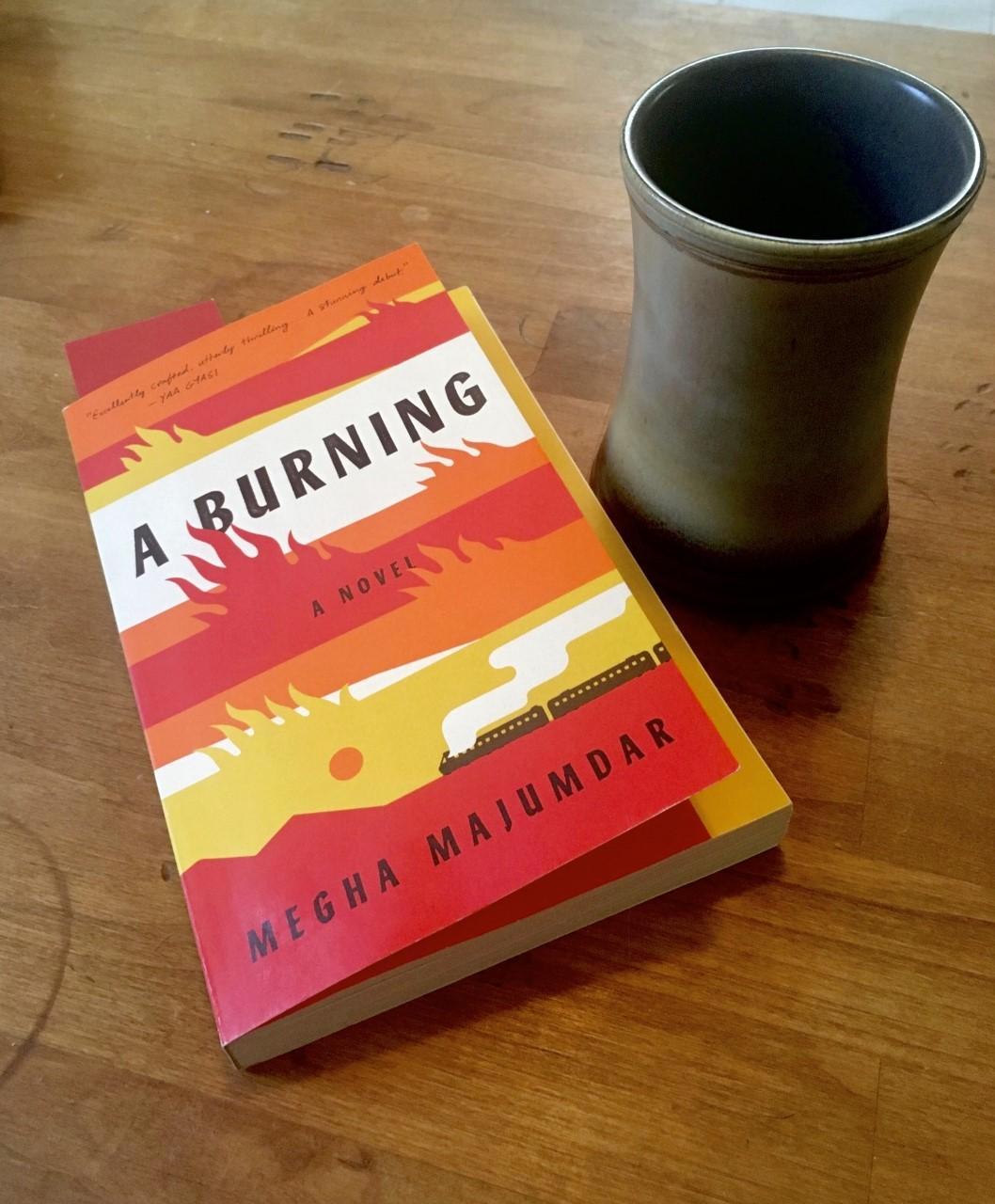A Burning by Megha Majumdar

A Burning
by Megha Majumdar
Vintage Books
June 2021
Paperback, 304 pages
ISBN-13: 978-0593081259
Book Review by Ankita Rathour
Megha Majumdar’s debut novel A Burning reads like a fictional tale and feels otherwise. Set in the world’s largest democracy, India, this is a story of many burnings. Flames of a terrorist attack at a railway station have claimed innocent lives in a Kolkata slum, where Jivan, the poor Muslim female protagonist, lives. In the wake of this attack, she criticizes her government’s action in a Facebook post and pays for it with her jivan (life). The novel narrates the aftermath of one burning by exploring many others carried out by religious bigots in the name of their Gods. Majumdar’s prowess lies in her dispassionate capturing of the gradual and inevitable transformation of a human being into a killable Muslim within a necropolitical Indian state. While a boisterous and unfounded claim is all it takes to set the wheels of hate in motion, Majumdar deftly uncovers the complex steps that go into concocting Muslim villainy. Ensuring justice in such a system is impossible because a woman like Jivan accused of terrorism “is never believed.”
The brilliance of A Burning lies in exploring the complex ways marginalized identities fall prey to power politics. Like any tale about moral choices, Jivan’s shot at freedom is marred by her tuition teacher, PT Sir, and her student, Lovely. PT is desperate to rise in the local political arena. As a hijra with dreams of acting for Bollywood, Lovely cannot risk her public image by trying to save someone like Jivan who has already been declared dead by the masses. Courtroom trials would yield no justice. And someone like Lovely knows this too well. Unity of the fringed identities in such a situation is desirable but impossible. Majumdar closely follows Jivan, PT Sir, and Lovely to capture the rise of right-wing ideology in India through their intertwined lives.
In the era of social media, the novel explores the rise of technology as an aid to far-right political ideology. Jivan’s harmless post is connivingly used to implicate her in a terrorist attack and give a rousing Hindu public, the villain whose publicized execution serves the nationalist agenda. Vitriol fills various media platforms demanding capital punishment for Jivan. The nationalist public wants Jivan set on the metaphorical fire, burning like an effigy of Ravana (the devil king of Ramayana) or the many satis of India, signaling purification from what they term evil or tainted. History speaks for itself. In 2001, a Kashmiri academician, Afzal Guru, was imprisoned for an attack on the Indian parliament and hanged without substantial evidence. Jivan is the Guru of 2001.
The prose is simple and thoroughly engaging. Majumdar’s narrative style is restrained, reflective, and carries an ethos of a trauma survivor who watches intricate forms of tragedies unfold from a distance. She narrates episodes of violence with utmost clarity. She focuses closely on the decaying subaltern bodies, reminding one of Steve McQueen’s film Hunger (2008). But Jivan’s not a revolutionary like Bobby Sands or the IRA (Irish Republican Army) members protesting British colonialism. She is a nobody. A nobody who simply wants a slightly better life but instead gets manufactured into a deadly terrorist.
This novel shocks without sounding preachy. It illuminates the context that often does not surround the popular discourse surrounding the ones like Jivan or Guru. It leaves the reader pondering and asking what Jivan had asked in the very beginning, “If the police did not help ordinary people like you and me, if the police watched [people] die, doesn’t that mean that the government is also a terrorist?” A Burning should be called what it actually is—a crime novel where Majumdar fictionalizes the current Bhartiya Janta Party (BJP)–led Indian state—a murderer, a serial killer that has created an economic model out of death.
Ankita Rathour is a Ph.D. student at Louisiana State University. Her dissertation theorizes the postcolonial dead girl trope in Bollywood crime films and Indian Anglophone crime fiction. She prioritizes writing and teaching about marginalized communities, non-western cinema, immigration, and postcolonial gender issues. Her essays and feminist criticism have been published globally. She lives in New Orleans.
